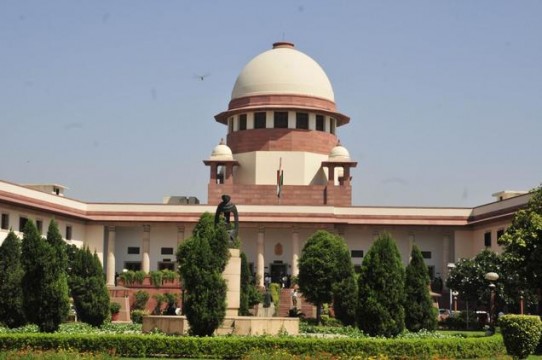
Indian Supreme Court Tuesday commuted death sentence of 15 convicts on the ground of inexplicable and inordinate delay in deciding their mercy pleas.
New Delhi, Jan 21/Nationalturk – In a landmark and significant judgement, Indian Supreme Court Tuesday commuted death sentence of 15 death row convicts on the ground of inexplicable and inordinate delay in deciding their mercy pleas.
Delivering its verdict on a petition filed by 15 death row convicts, the Constitutional Bench of Supreme Court commuted death sentence of all the 15 on the ground of delay in deciding their mercy plea by the government.
The apex court ruled that a death row convict must be hanged within 14 days after dismissal of his/ her mercy petition.
‘Inordinate and unreasonable delay attribute to torture’
“Inordinate and unreasonable delay attribute to torture. Whether the convict is a terrorist or an ordinary criminal, delay is a ground for commutation of death sentence,” read the ruling, which accepted that prolonged imprisonment of a convict awaiting execution amounts to cruelty and violates the fundamental right to life under Article 21 of the Constitution.
Appeals to the President of India are the last legal obstacle between prisoners on death row and the hangman.
Ruling that death row convicts and their families must be informed after their mercy plea is rejected by the President or the Governor, it said, “Once the mercy plea has been rejected, it should be communicated in writing.”
‘Guidelines on dealing with death row convicts and mercy pleas’
The apex court also laid down important guidelines on dealing with death row convicts and their mercy pleas.
The court said schizophrenia, insanity and mental illness can be reasons for commuting death penalty and the convicts should be given adequate medical treatment and legal aid.
The apex court also said that solitary confinement of a death row convict and other prisoners is unconstitutional.
The court also mandated respective state governments to place necessary material before the Governor while sending the mercy plea.
Once the mercy plea is rejected, it should be conveyed in writing to the convict, the court ordered.
The judgement may have implications in various cases. It s also likely to impact the case of three men from Indian state of Tamil Nadu convicted for their roles in the assassination of former Indian Prime Minister Rajiv Gandhi. Their mercy plea was filed 11 years ago with the President’s office, but was rejected in 2011.
Write your comments and thoughts below
Asia News/ NationalTurk India News


